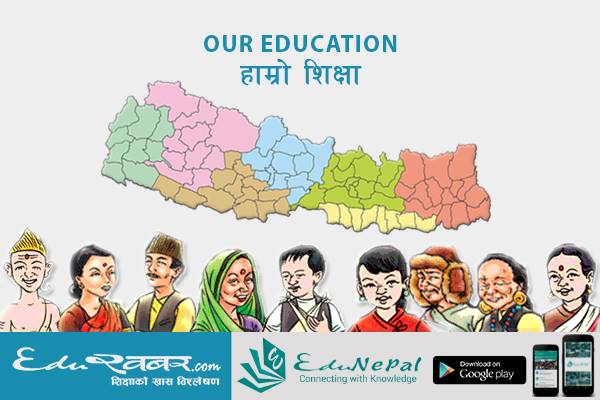
Kathmandu - The constitution says basic education would be both compulsory and free for all. It entrusts local bodies for managing basic education up to the secondary level school. The local representatives are gearing up to implement their new rights however they are in dilemma in the absence of a clear roadmap from the government.
The local representatives publicised their policies and programmes related to education from the first meeting of their respective councils. However, they cite deficiency of budget to implement their goals. They are struggling to identify sources of income and generate revenue to mobilise that for implementing their plans.
“The local bodies have the authority to formulate budget and make expenditure by themselves, so they should also find funds required for them,” says Keshab Dahal, the Spokesman at the Department of Education. “The government imposes taxation on people. Most of the revenue collected from the people should be spent for education.”
Experts have pointed out that the elected representatives should accord top priority to education to pave way for sustainable development in the country. They say both federal and local government should complement each other to implement their constitutional right. Arjun Dhakal, an official with budget division of the Education Ministry says, it is the responsibility of local government to identify potential sources of income. ‘The constitution clearly stipulates the areas from where local governments can generate income. We should attach importance to generating funds based on the constitutional provisions.”
He said the local governments should implement the provision of the constitution by finding out the source for financing education. ‘There are different ways of finding out resources. First we need to ascertain what resources for local bodies mean. The regular grants provided by the central government to local government are also a resource for financing education.’
He said the local governments can even introduce tax related laws and use certain percent of the generated revenue to fund education. Ghanasyam Aryal, the deputy director of the Education Department says there needs to be a blueprint for education related activities to be carried out for a year. “The local government should first prepare that and check how much resource do they have and how much they can manage. Then they should seek the support of the central government on the amount that is insufficient.” He said local needs should be taken into account while formulating education policy.
Experts say there is a need of political commitment to ensure that revenues collected from the people would be spent in education. And certain percent of income from development activities in the local units should be channnelised for education related goals. They also suggest that the metropolitan city and rural metropolitan units can impose certain percentage of tax to help fund schools with limited resources.
Spokesperson of the Education Department Dahal suggests that financing would play a crucial role for meeting educational goals. “Like we need fuel to drive cars, we need money in all the process of managing education,’ he said adding that school level education has been enshrined as fundamental rights in the constitution and central government has equally important responsibility to support the implementation of the goal. ‘Both primary and secondary education should be provided free of cost according to our constitution, this is the responsibility of the central government.”
He said the local governments have a big challenge compared to central government to implement the constitutional provision. ‘It requires more fund to manage education. It is the responsibility of local government to ensure that kids from poor families also come to school for education. It requires additional funding and may not be covered by budget that we are allocating from the centre. They should allocate budget for those who cannot come to schools due to financial constraints.’
प्रतिक्रिया